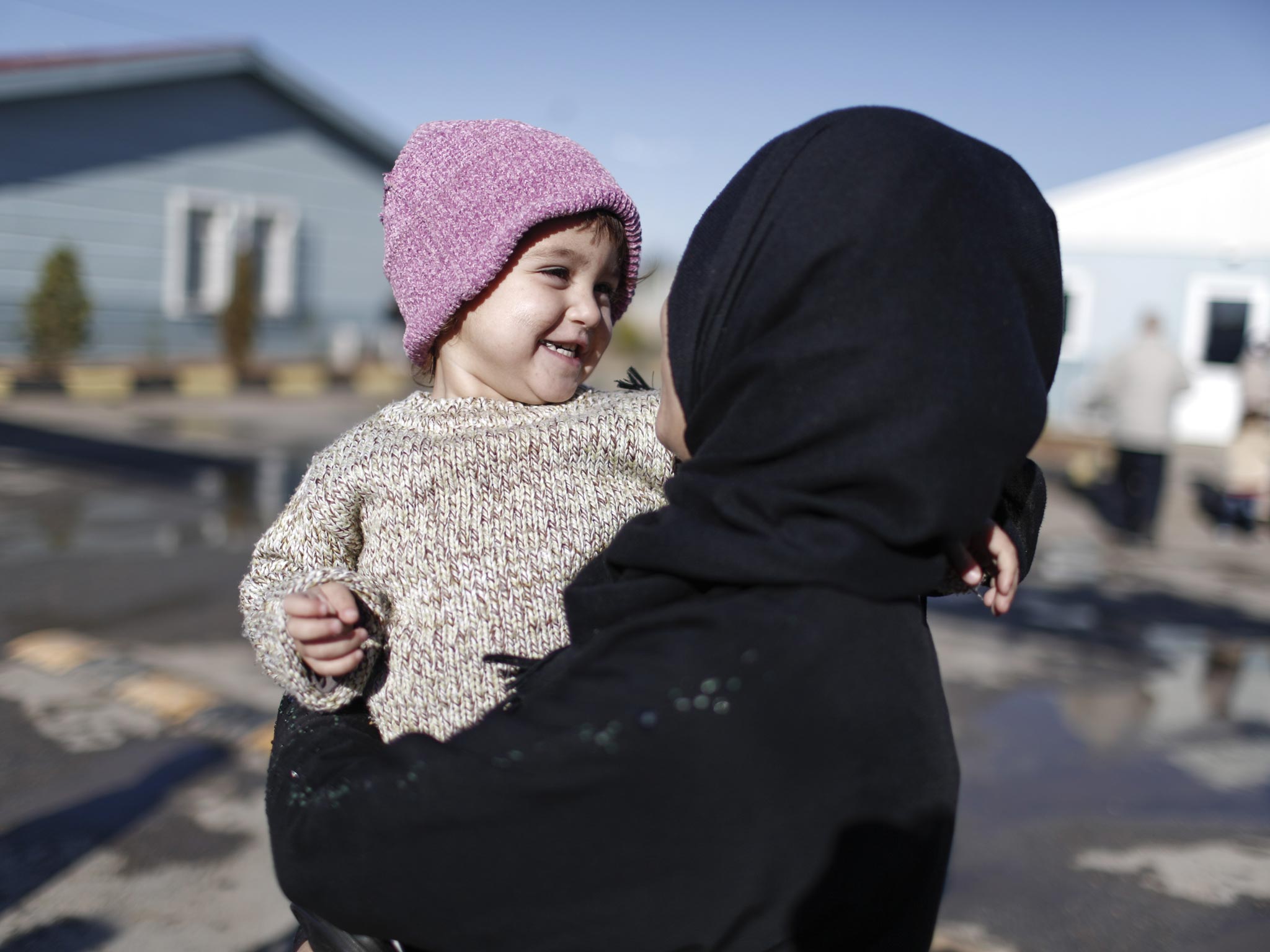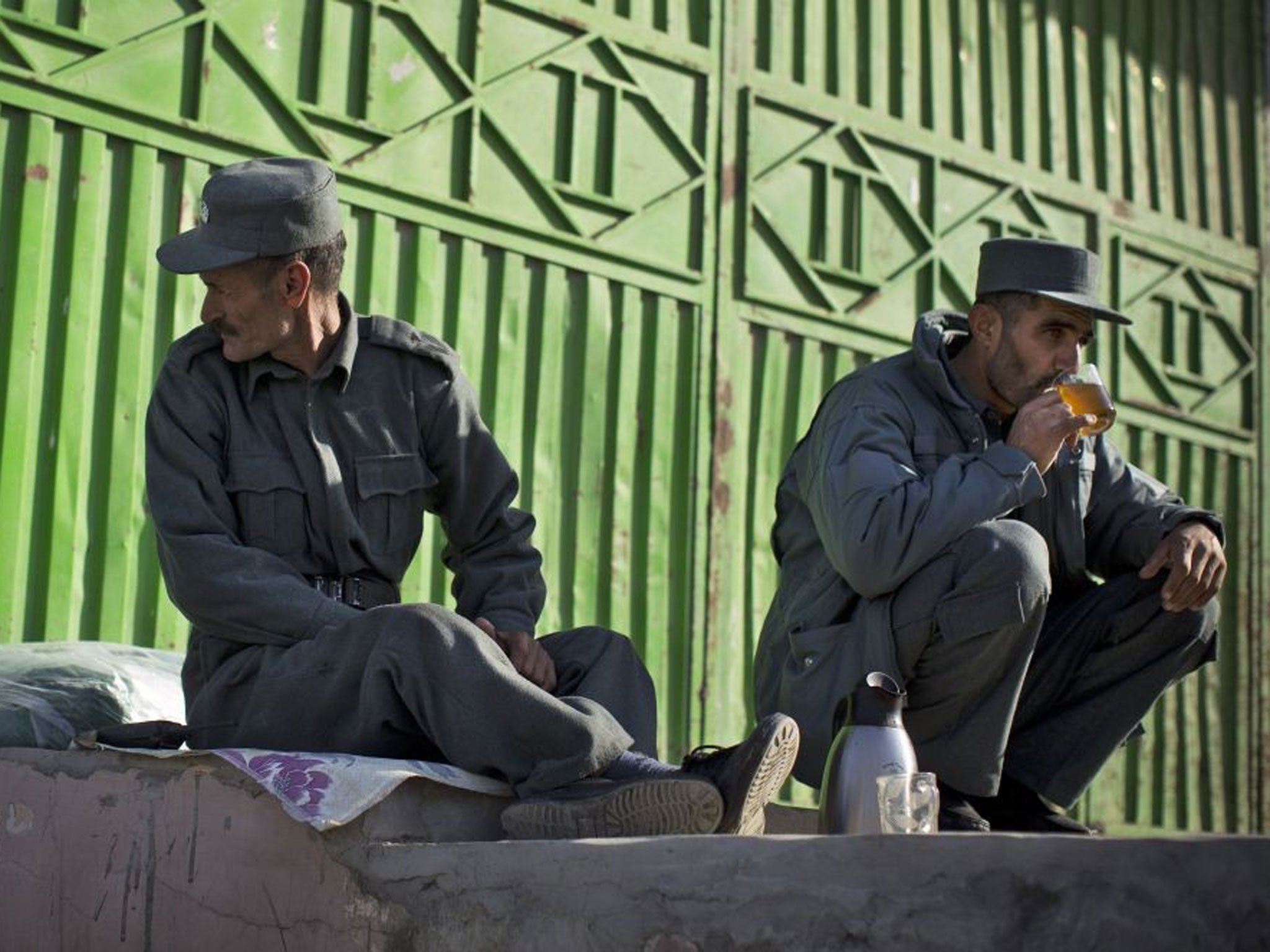Is our withdrawal from Afghanistan the answer to our prayers for peace?
World View: Marvel once more as the UK meekly follows America’s lead


Your support helps us to tell the story
From reproductive rights to climate change to Big Tech, The Independent is on the ground when the story is developing. Whether it's investigating the financials of Elon Musk's pro-Trump PAC or producing our latest documentary, 'The A Word', which shines a light on the American women fighting for reproductive rights, we know how important it is to parse out the facts from the messaging.
At such a critical moment in US history, we need reporters on the ground. Your donation allows us to keep sending journalists to speak to both sides of the story.
The Independent is trusted by Americans across the entire political spectrum. And unlike many other quality news outlets, we choose not to lock Americans out of our reporting and analysis with paywalls. We believe quality journalism should be available to everyone, paid for by those who can afford it.
Your support makes all the difference.One of Pope Francis’s prayers for the new year was immediately granted. Hours after he told the crowds in St Peter’s that he was praying there would be no repetition of the tragedy off the island of Lampedusa last October – when more than 300 would-be immigrants drowned – the Italian coastguard rescued a similar boat, drifting in the ocean with 223 people on board. All were saved.
It is no surprise that this news was not reported outside Italy. Migration remains a toxic issue throughout Europe, and those 223 souls saved are 223 more who have snuck inside the “Fortress”.
Britain’s long-running moral panic about an invasion of cadging Romanians and Bulgarians has yet to find any basis in fact, but doubtless our moral panic-mongers will maintain their vigil until at least one Bulgarian with appendicitis checks into an NHS hospital, or one unlucky Romanian runs out of cash and attempts to sign on.
Meanwhile, as Britain refused to follow the lead of France and Germany and admit Syrian refugees, it emerges that Bulgaria has been admitting thousands of them.
Despite appearances, this was not an attempt by the Bulgarian government to make us crawl under the nearest table in shame. The Syrians, desperate to get in to the EU by hook or by crook, have been thwarted from squeezing in to Greece by tight new controls, and are paying people smugglers to bring them through Turkey’s border with Bulgaria instead.
Bulgaria is the poorest EU member-state, but the Bulgarian authorities have the decency to grant them asylum and to accommodate some 6,500 in camps, where a dozen or more share a single room in a disused school or shiver in tents, and survive on food provided by kindly Bulgarians. As one of the Syrians put it – living in a small container with his wife and one-year-old baby – “Here we at least have peace.”
But it is risky for the Syrians to venture beyond the camp: support for an ultra-nationalist party called Ataka – “Attack” – launched by a chauvinistic television star in 2005, has been bolstered by the arrival of the refugees. Members of the party have described the Syrians as “savages”, “mass murderers”, “scum”, and “terrible, despicable primates”. Now it holds the balance of power in Sofia’s parliament. Ataka’s prodding has prompted the government to start work on erecting a high fence along the Turkish border, to staunch the flow.

“Invasion” is the buzzword, and for the Continent it’s a livelier reality than for we British in our own blessed isles, where the last invasion was by the Dutch in 1688 and is generally regarded as a Good Thing. The Syrians battering at Europe’s gates remind Bulgarians, Hungarians and Austrians of either the Turks or the Hun or both. “It’s like when the Huns came to Europe,” the new head of Bulgaria’s refugee agency told The New York Times, as if he had personal experience of the event. “Why don’t these people know how to use toilets?”
The Hun fear, spreading through Europe like the plague bacillus, threatens to turn the EU parliament’s elections in May into a danse macabre of ultra-nationalists, neo- and unreconstructed fascists, and weird unplaceables such as Beppe Grillo’s populists and Italy’s new Pitchfork Movement. Their debates may become strangely gripping. Britain’s own picturesque contribution to the carnival could be much worse. After all, Mr Farage has urged the admission of Syrian refugees, which puts him in a small minority of British politicians.
But if Europe is shaking in its boots over invaders, for Britain our own invading days are done. The other great moment of 2014 will be the final – one devoutly hopes – Afghan scuttle. Kipling anticipated the event by more than a century: “Far-called, our navies melt away;/On dune and headland sinks the fire:/Lo, all our pomp of yesterday/Is one with Nineveh and Tyre…”. Like previous such retreats – the shedding of empire in India and Africa – this will be accompanied by laments for the fallen and thankfulness for families reunited.

That will be correct, but not enough. The fact that we are merely treading in America’s footsteps does not diminish it. Following Parliament’s refusal to back a Syrian adventure last year, this will be an epic moment, deserving a substantive response.
President Obama has styled his attempt to extricate the US from Middle East quagmires and concentrate on Asia a “pivot”. Shorn of neo-imperial tasks, Britain needs a pivot of her own.
What might that be? After my hostile piece last week about the Department for International Development’s failure to turn South Sudan into a viable state, the department’s parliamentary under-secretary, Lynne Featherstone, shot back an instant rebuttal that wasn’t. My point was not that the aim was unworthy – peace in Africa is a vastly worthy aim – but that South Sudan, hugely boosted by Mr Obama and the US, has never looked a remotely good prospect as a nation state. That was obvious to many officials involved from the outset. But they meekly followed America’s lead.
That’s not good enough. With centuries of empire-building behind us, we still know far-flung parts in an intimate way that America, and most other countries, cannot match. Sure, usually we have got to know them for the purpose of fleecing them. But the knowledge remains and can be put to better use. Which British politician is going to have the imagination to grasp the withdrawal of British forces from Afghanistan as the moment to launch our own pivot to peace?
Join our commenting forum
Join thought-provoking conversations, follow other Independent readers and see their replies
Comments